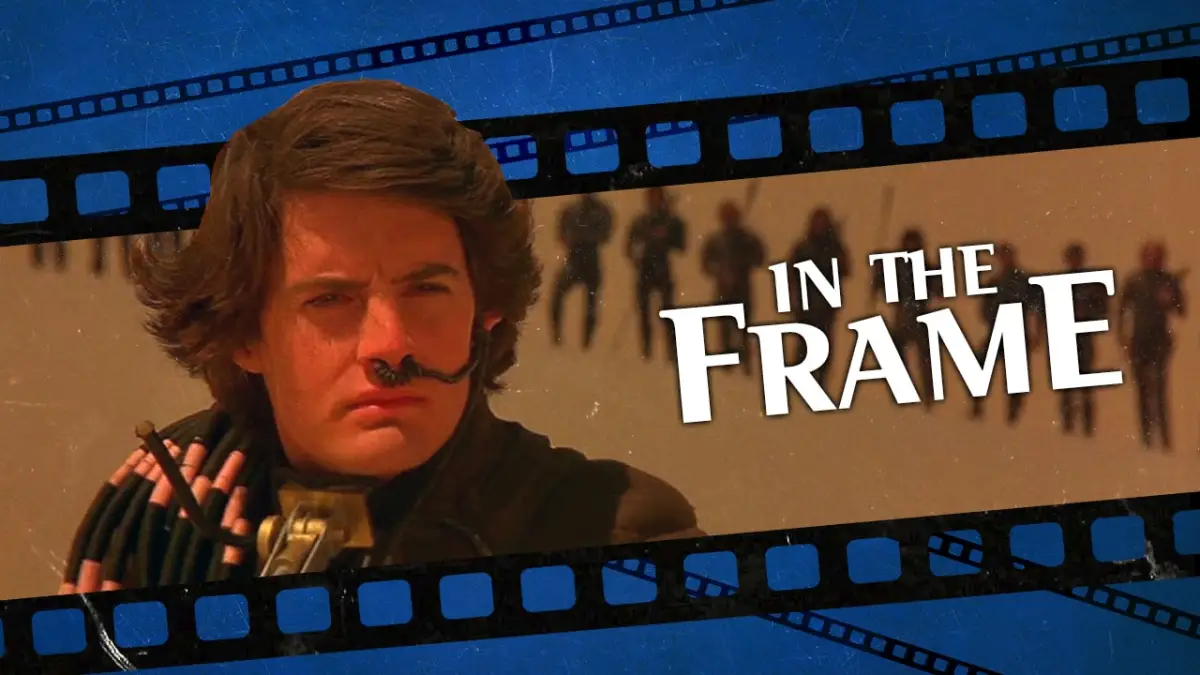Dune is a complicated and challenging text.
The novel has been rightly praised as “science-fiction’s greatest fantasy epic” and “perhaps the greatest novel in the science-fiction canon.” It was a major influence on George Lucas’ Star Wars. However, Frank Herbert’s classic has consistently proved confounding to those who would bring it to the screen — just ask Alejandro Jodorowsky or David Lynch.
The novel is also challenging to readers. As with most texts that old, there are unfortunate elements. Herbert’s portrayal of Baron Harkonnen plays into a variety of homophobic stereotypes, perhaps reflecting Herbert’s difficult relationship with his “number two son” Bruce. Director Denis Villeneuve has acknowledged a need to update the Baron, a character “flirting very often with caricature.”
There are a lot of debates about the politics of Dune. Even a rough outline of the novel suggests legitimate causes for wariness. There’s a clear exoticism to Dune. The spice at the heart of the story is an obvious stand-in for oil. The character of Paul Atreides was directly inspired by T.E. Lawrence. The “Mahdi” was a real revolutionary and religious Islamic figure in 19th century Sudan.
Herbert uses a lot of Islamic and Arabic terminology in characterizing Arrakis and its inhabitants. This opens up the story to criticisms that it is a colonialist narrative. On the surface level, Dune is the tale of a dispossessed young prince who leads a native population in revolt against their exploitative overlords. At its most extreme, Paul Atreides has been described as “the ultimate mighty whitey.”
As with most debates around these sorts of topics, the answers are far from clear cut. On the most literal level, Herbert largely avoids identifying his characters by ethnicity. This makes a certain amount of sense, given that Dune unfolds in the distant future, and it seems likely that the human race will become more and more of a melting pot with fewer clearly defined racial divisions.
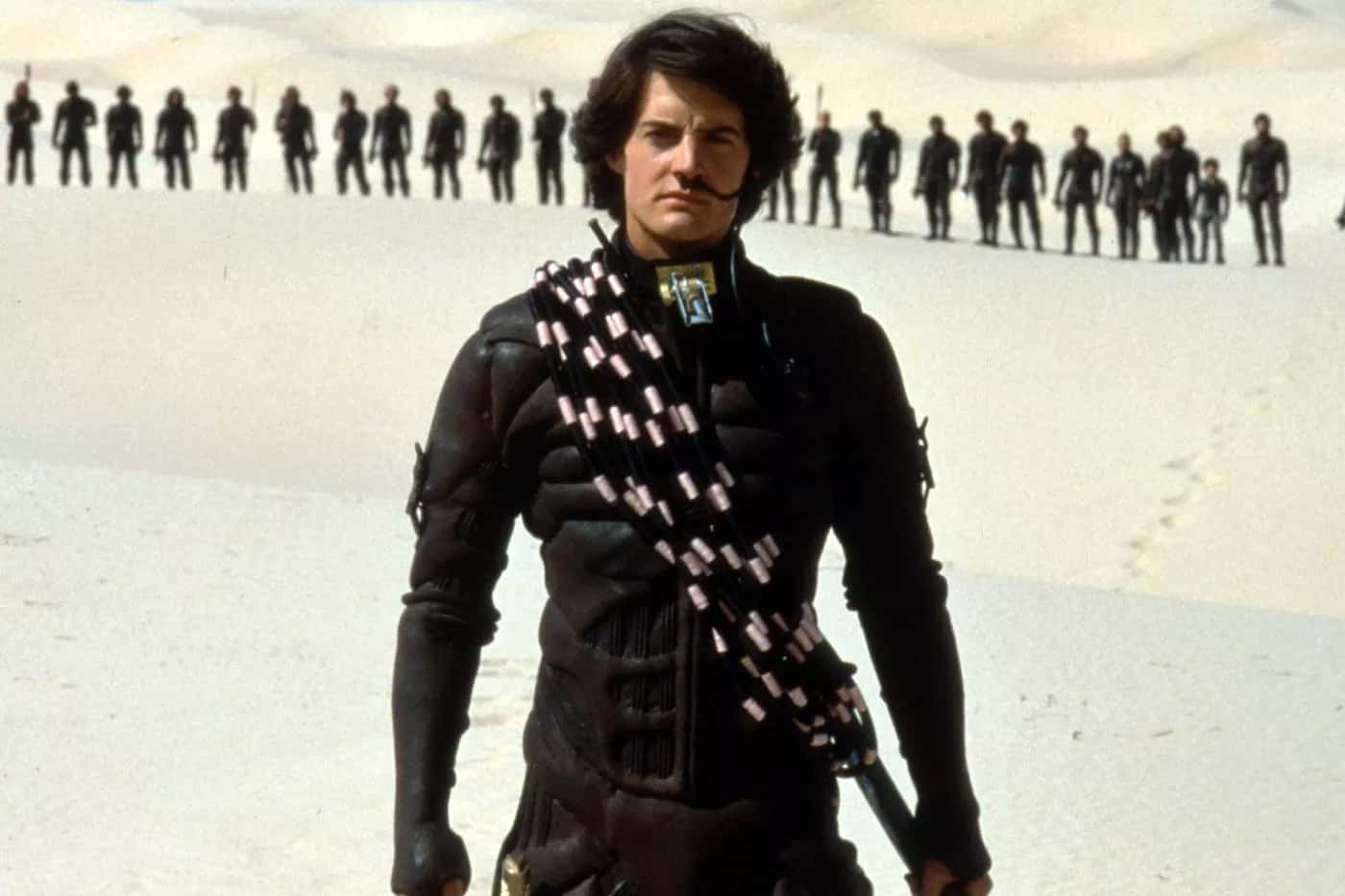
However, Dune is not read in an idealized post-racial future. It is read in the context of the world in which it was written. Dune is the story of an Arabian-inspired culture subject to the whims of larger powers. The planet Arrakis and the Fremen who inhabit it are often treated as mystical and magical, exoticized through the lens of the more technologically developed galactic powers.
Those galactic powers are largely defined as European in nature. The Atreides family name is Greek, and Villeneuve portrays their home world as “Scandinavian-like.” The Harkonnen family name is perhaps Finnish, but the name and title of Baron Vladimir Harkonnen is “redolent of Russian imperialism.” It’s certainly fair (and important) to ask about the lens through which Dune unfolds.
This would be a serious problem if Dune were intended as a straightforward “chosen one” narrative, if the novel asked its readers to unironically celebrate this story of a young (European) man who arrives on a (Middle Eastern) desert planet, is embraced as a messiah by the native population, and leads them to freedom while avenging the death of his father and the betrayal of his family.
This would be a very superficial and simplistic reading of Dune, but it is surprisingly common. It might be a result of the inevitable comparisons between Dune and more conventional “hero’s journey” narratives like Star Wars or The Lord of the Rings. There is a tendency to equate the young Paul Atreides with characters like Luke Skywalker or Frodo Baggins.
In reality, Dune is a cynical and brutal deconstruction of these sorts of narratives, an aggressive critique of mythic structures. “It began with a concept: to do a long novel about the messianic convulsions which periodically inflict themselves on human societies,” explained Herbert. “I had this idea that superheroes were disastrous for humans.”
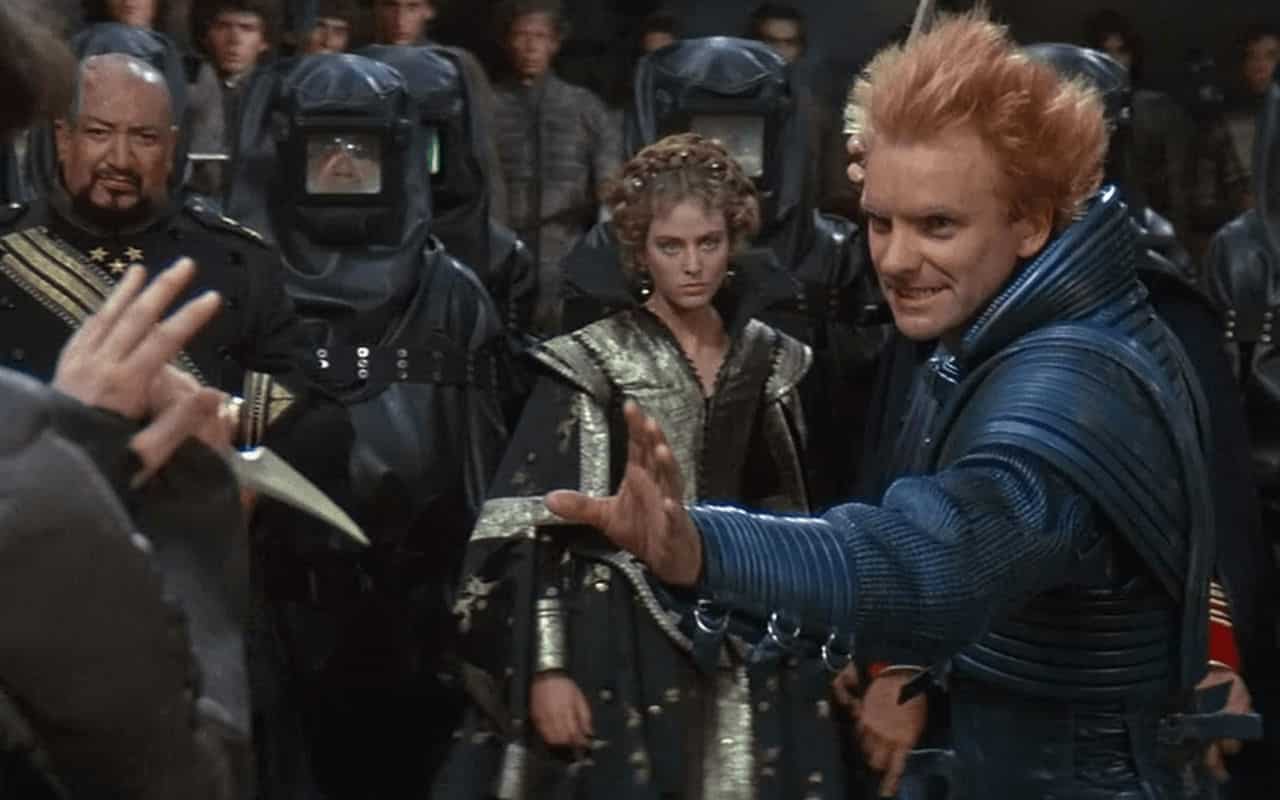
This is obvious even within Dune, which is full of competing and malformed narratives. Paul Atreides is a (quite literally) misbegotten “chosen one.” He is part of a eugenics program to produce the messianic Kwisatz Haderach. However, Paul was intended to be a daughter who would become a mother to the savior. He was born a generation early and of the wrong gender.
This isn’t the only mythic narrative that shatters over the course of Dune. Emperor Shaddam IV plots against House Atreides to secure his position, only to see his schemes fall apart. Doctor Wellington Yueh betrays House Atreides in the hope that the captured Duke Leto might get close enough to poison Baron Harkonnen in an ending befitting an epic tragedy, but that doesn’t work either.
Even Baron Harkonnen constructs his own narratives. His nephew Feyd-Rautha is an obvious foil to Paul. He is even positioned in the breeding program as the intended father of the Kwisatz Haderach. The Baron plans to introduce Feyd-Rautha as a messianic figure on Arrakis, earning the population’s adoration by liberating them from his tyrannical older brother, “the Beast” Rabban.
The primary difference between Paul’s narrative and the narratives constructed by other characters is that Paul’s actually comes to fruition. Indeed, Dune is explicit that Paul’s manipulation of the indigenous population is cynical. He exploits “the Missionaria Protectiva,” a system of religious myths that have been instilled in these cultures so that they might be rendered more malleable.
Dune is as much a deconstruction of the “chosen one” trope as Game of Thrones. Herbert suggested that the central theme of Dune was, “Beware of heroes. Much better [to] rely on your own judgment, and your own mistakes.” Paul Atreides might be the hero of Dune in a basic narrative sense, but not from any moral perspective. Even his family name suggests he is a tragic figure.
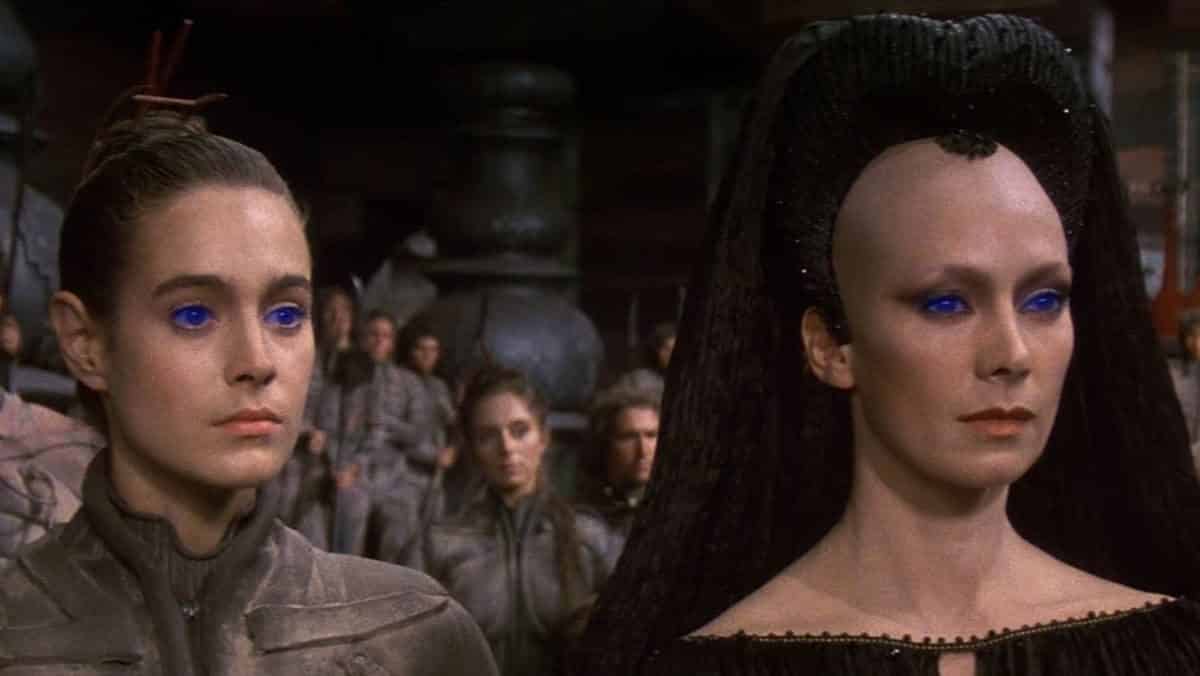
As Dune develops, Paul comes to believe that he will be the savior of mankind. He imagines a “Golden Path” to an idealized future. However, the novel is decidedly ambivalent about the horrors necessary for Paul to realize his vision. As Paul ascends to something approaching divinity, the audience is confronted with the monstrous implications of his internal calculations.
Herbert makes this more explicit in the sequels. “(A)t a conservative estimate, I’ve killed sixty-one billion, sterilized ninety planets, completely demoralized five hundred others,” Paul confesses in Dune Messiah. The sequels suggest that while Paul would slaughter billions of people for his ideal future, he selfishly refused to undergo the physical transformation to God Emperor himself.
It’s notable that Dune appeared around the same time that science fiction and fantasy writers were growing more wary of fascistic underpinning of familiar genre tropes. The Iron Dream was released just a few years after Dune, imagining an alternate universe where Adolf Hitler became a fantasy novelist.
It’s easy to miss all of this. Poe’s law applies as much to deconstruction as satire; it is easy to read a critique of a particular kind of story as an example of that kind of story. This may be why Dune has confounded so many of those who would adapt it for the big screen for so long. Blockbusters audiences tend to gravitate towards triumphant narratives, and so blockbusters trend that direction.
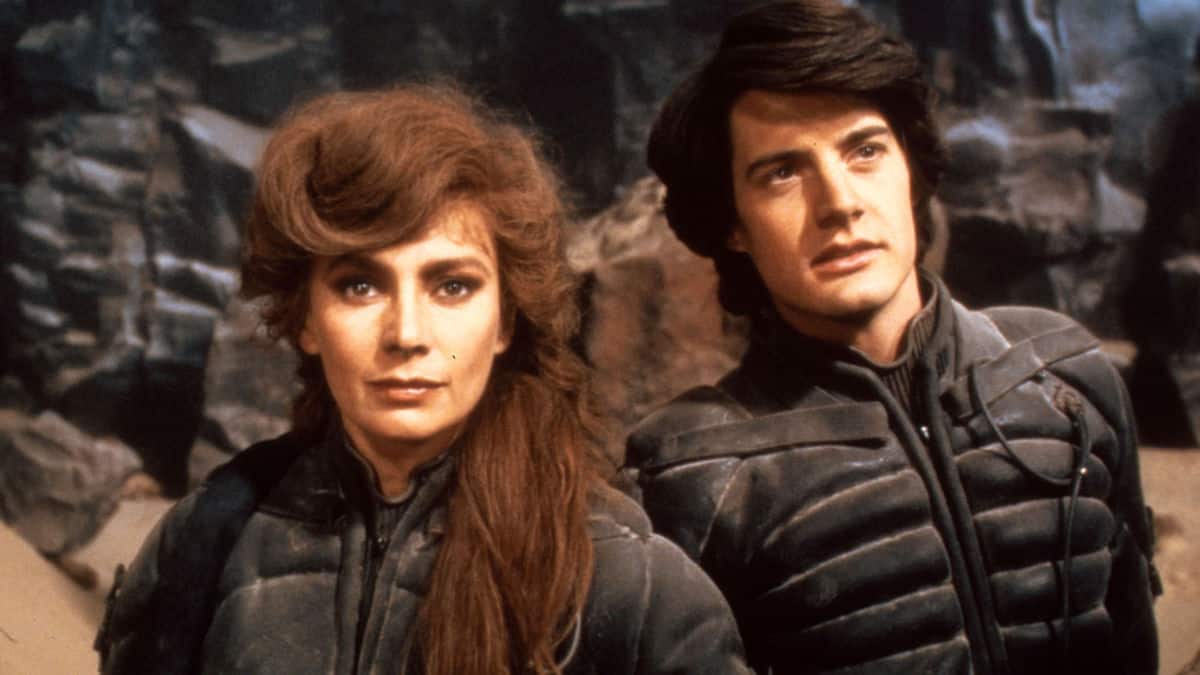
This is perhaps the biggest issue with David Lynch’s cinematic adaptation, which seems in places to have been pushed towards that Star Wars template. Lynch’s adaptation opens with an expositional monologue worthy of a Star Wars opening crawl, and it leans heavily into Paul’s quest to avenge his father’s death. It is less critical of Paul’s journey than the source material, more celebratory.
This makes Denis Villeneuve the perfect director for the upcoming Dune remake. His last film was Blade Runner 2049, which similarly deconstructed the “chosen one” archetype. It was built around a replicant named K (Ryan Gosling). K comes to believe that he is an anointed messiah figure who will lead his people to freedom, only to gradually realize that this is nothing more than a fantasy.
There is a lot to unpack around Dune. The politics of the novel are complicated and challenging. It undoubtedly exoticizes the Middle East and plays with the tropes of classic colonial narratives. However, it also uses those tropes to critique the trappings of science fiction and fantasy storytelling. The extent to which it succeeds or fails is for each reader to determine for themselves.
Still, while it’s possible to argue over what Dune actually is, the novel is very clear on what it isn’t. It is not a “chosen one” narrative or a “white savior” story. It is something much more complex and much more interesting than that.

